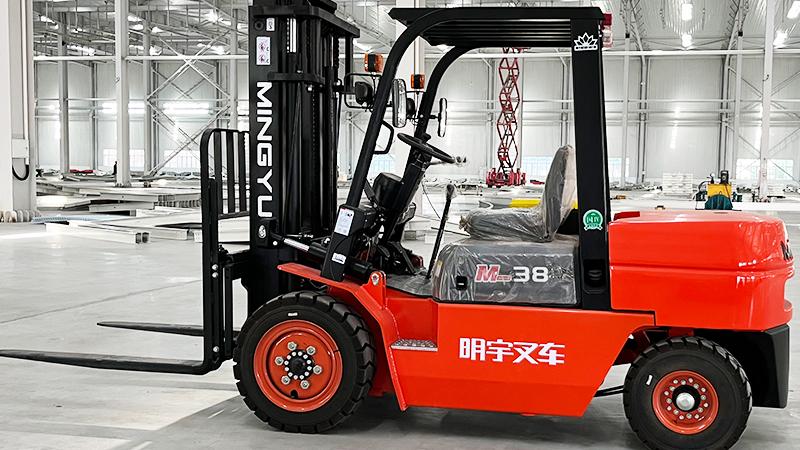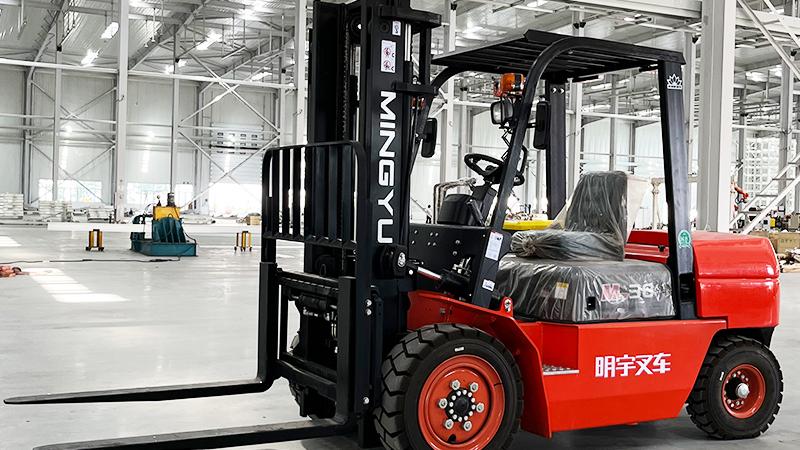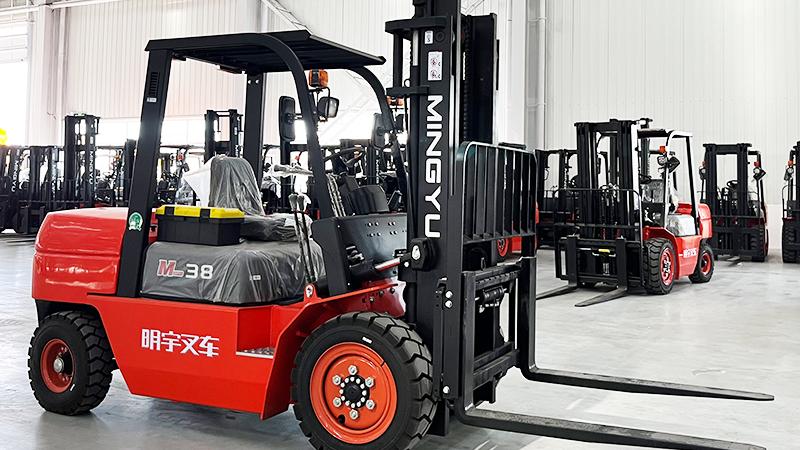The choice between power systems in material handling equipment significantly impacts operational efficiency and application suitability. The traditional diesel forklift is renowned for its powerful torque and traction capabilities, making it particularly suitable for handling heavy loads in challenging outdoor environments such as construction sites and port terminals. This equipment does not rely on charging infrastructure, with quick and convenient refueling enabling extended continuous operation - a significant advantage for companies running multiple shifts. However, this power source comes with notable drawbacks, including exhaust emissions, noise generation, and relatively high maintenance requirements. In contrast, electric forklifts utilize battery power, producing zero emissions during operation and minimal noise, making them ideal for indoor warehouses and environmentally sensitive industries like food and pharmaceuticals. Although electric models typically involve higher initial purchase costs and require charging infrastructure planning, their energy efficiency results in substantially lower long-term energy costs compared to diesel fuel. It is worth noting that technological advancements in modern electric forklifts have significantly improved their power and endurance capabilities; however, diesel forklift remains irreplaceable when dealing with extreme loads and complex terrain.
From a financial perspective, thorough analysis reveals that Total Cost of Ownership (TCO) serves as a crucial indicator for measuring equipment economics, extending far beyond initial purchase price. A diesel forklift typically involves lower initial acquisition costs compared to electric forklifts of equivalent capacity, presenting an attractive option for budget-conscious users. However, its operational costs throughout the entire lifecycle may prove higher. These costs include continuous diesel fuel purchases, with prices fluctuating according to the volatile global oil market. Additionally, maintenance expenses for diesel forklift are considerably higher, involving regular replacement of engine oil, air filters, fuel filters, and other consumable components. The complex mechanical structure of internal combustion engines requires more frequent maintenance and professional technical support. Modern diesel forklift models must also comply with increasingly stringent emission regulations, potentially necessitating additional investment in exhaust treatment systems. In comparison, electric forklifts demonstrate advantages in maintenance costs due to their simpler mechanical structure and fewer wearable components. The primary maintenance focus revolves around battery care and regular electrical system inspections, substantially reducing routine maintenance expenses. Although battery replacement represents a significant long-term cost, advancing battery technology continues to extend service life while reducing costs.
Environmental impact and sustainability considerations are increasingly influencing equipment selection decisions. The diesel forklift faces challenges in environmental performance due to its combustion process, which generates exhaust emissions including carbon dioxide, nitrogen oxides, and particulate matter. These emissions not only impact ambient air quality but may also subject users to carbon emission regulations and additional environmental costs. Furthermore, the operational noise of diesel forklift can reach 85-90 decibels, potentially causing hearing damage to long-term operators and necessitating investment in protective equipment. In contrast, electric forklifts demonstrate significant advantages in environmental performance, producing zero local emissions during operation and helping companies achieve sustainability goals and reduce their carbon footprint. Their low-noise operation (typically below 65 decibels) creates a more comfortable working environment, enhances communication efficiency, and reduces the risk of workplace accidents. For companies pursuing green certification or operating in environmentally regulated regions, electric forklifts offer undeniable advantages. However, it must be acknowledged that in remote areas or regions relying primarily on fossil fuel power generation, the environmental benefits of electric forklifts may be somewhat diminished due to indirect emissions from electricity production.
Looking toward future development trends, both power systems continue to evolve through technological innovation. The modern diesel forklift is undergoing significant transformation through the adoption of cleaner combustion technologies, advanced exhaust treatment systems, and hybrid solutions. These innovations aim to reduce environmental impact while maintaining the traditional advantages of diesel power. Many manufacturers are developing new-generation diesel forkliftmodels that meet the most stringent emission standards through optimized engine design and sophisticated electronic control systems. Simultaneously, electric forklift technology is advancing rapidly, particularly in battery technology where lithium-ion batteries are gradually replacing traditional lead-acid batteries, offering higher energy density, faster charging capabilities, and longer service life. Intelligent energy management systems and regenerative braking technology further enhance the energy efficiency of electric forklifts. For specific application scenarios, such as cold storage environments, electric forklifts demonstrate particular advantages as they are not affected by low temperatures like diesel engines. However, in extremely high-temperature or dusty environments, the diesel forklift continues to display its rugged durability and reliability. The future material handling market will likely see coexistence and complementary development of both power systems, with users making optimal choices based on specific application requirements, operational conditions, and strategic goals.Post time:Sep.03.2025



